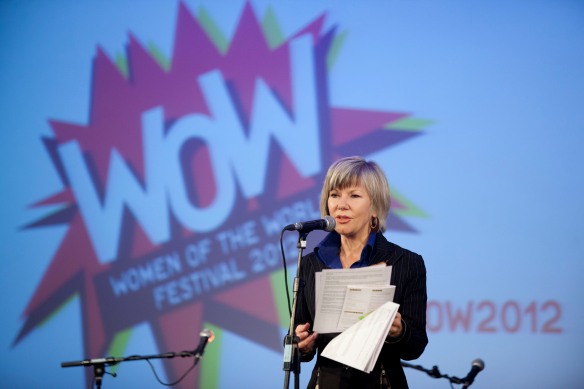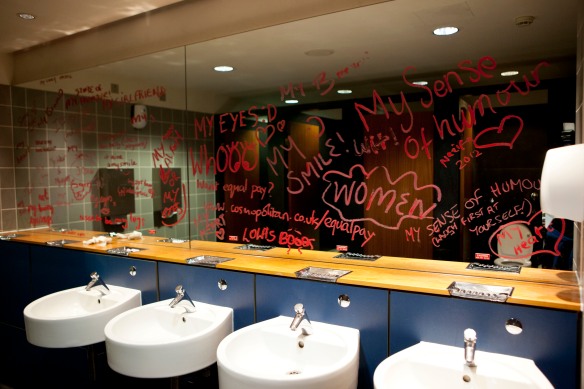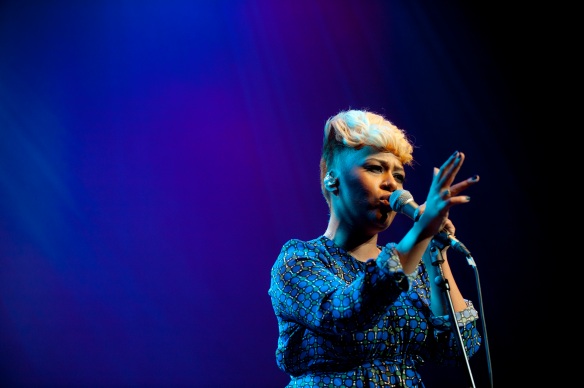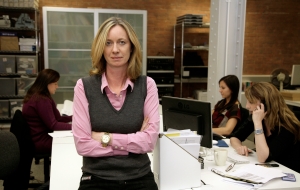I’ve been blogging about feminist issues for just under a year now but there’s one topic I’ve studiously avoided in that time – pornography. In some ways it’s because I can convince myself that it doesn’t affect my life. I don’t watch it. I don’t purchase it. I’ve never been with a partner that, to my knowledge, consumes it. However, I know it’s an area of contention and debate in feminism and have always thought I should at least put it out there for discussion.
My big problem is that I don’t know where to start. I’m confused about it and the issues surrounding it. I don’t believe that just because I don’t enjoy it, everyone who does is wrong. I believe in people having healthy sexual appetites and if watching other people engaged in sex is something that works for you, go for it. However I’m not blind to the fact that what was previous soft porn is now just the front covers of mainstream ‘lads mags’ like Nuts and more worringly what was previously considered hardcore, niche-interest is now mainstream. And what is mainstream is more easily available than ever before – online and on mobile phones – which means that instead of passing around copies of Playboy in school, young men are seeing quite skewed versions of sexuality and believing it to be what ‘normal’ sex is supposed to be like.
On a gut level my feelings about porn have always been that it tends to subordinate women. Porn is largely created for and by men and so has little regard for how women are portrayed. As an industry it makes billions from the objectification of women – so much so that when the US government was bailing out the car industry, the porn industry argued that they should receive help as well as they were one of ‘our nation’s most important businesses’. On the flipside, I don’t believe in banning things that I’m uncomfortable with. I’d rather people were educated about an issue to the extent that they choose, by and large, not to participate in things which adversely affect others so badly.
With all this in mind, I was really disappointed to miss the WOW Festival session on Mary Whitehouse – Prude or Prophet (there was so much I wanted to see that weekend that some sessions just clashed). Fortunately for me, the session was one of the ones filmed and uploaded to the site afterwards. I was interested to hear that the prime reason for holding that particular debate was that Jude Kelly was as confused as I am. She had grown up in an era of censorship. As the world became more liberal the mood of society became one where people should feel entitled to learn about things on their own, and that nothing should be hidden from them. Mary Whitehouse became a lone voice, and a figure of fun, in the way she argued that women would be debased and disgraced by the way they were beginning to be portrayed and would rue the day that they allowed this to happen. Jude Kelly hated everything she stood for. But now? She was beginning to wonder if Whitehouse had had a point all along. The portrayal of women in mainstream porn, and in fact in much modern media has in fact left us feeling objectified and judged. So now, Kelly said she didn’t know what she felt and wanted to learn more.
The panel was made up of Kelly, Rachel Morris (Cosmopolitan‘s resident sex therapist), Amina Doherty (co-ordinator of the Young Feminist Fund) and Julia Long (feminist activist involved with the London Feminist Network and Object) and was chaired by Helena Kennedy QC. It was a lively and really interesting discussion with plenty of input from the floor.
Amina Doherty really impressed me with her confidence and her assertion that what young women need is space to talk about and develop a healthy, sexual identity. Being aware of the good and bad that’s out there is okay as long as they have space to talk openly and freely about it and be educated about what it all means to them. Encouraging critical engagement was key.
Julia Long probably took what I would interpret to be a more expected, feminist line. She quoted examples of what is considered mainstream in porn these days and the mere descriptions brought tears to my eyes and prompted me to cross my legs. She also made the good point that discussions of porn have, as Jude Kelly pointed out, been often painted as good versus bad morality. The common ground on both sides of the fence be they pro-sex, freedom of expression, liberal views or anti-porn, repressive, moralistic views is that women are oppressed – they are an economic commodity to be bought and sold. Food for thought.
Rachel Morris approached the discussion from the perspective of someone who’s not an academic or expert on this, but who does deal with the effects that porn and the objectification of women has on our culture. The letters she gets from women are laden with expectations of what their sexual experiences should be like, which are directly taken from porn culture. Women think their vaginas are hideous, their labia too big or malformed. Men don’t ‘do’ pubes anymore and so women feel pressure to be hairless. She strongly felt that if she was a young woman, what she would need is for someone like her to be teaching sex education in schools.
Needless to say one of the big points discussed was censorship. We’re all nervous of it and for those of us who are liberal, it feels wrong to censor what consenting adults want to see or engage in. However, Julia Long felt that women were being censored anyway, as their voices are not being heard (she quoted women’s disappearance from mainstream media as a related issue). Amina agreed that women are silenced and that porn is produced from the male gaze. However, she really wants young women to engage in the discussion and embrace positive sexuality. Claire Short’s campaign to end Page 3 was raised, along with her subsequent vilification in the media. All the panellists agreed that this had contributed to women feeling fearful to speak out.
A question from the floor supported Julia’s stance on possible censorship – we already have rules that limit what we can see as well as rules against racial hatred. Why did rules like this not apply to gender hatred? Why could the more hardcore content, which could be construed as torture, not be restricted or banned completely? The simple answer, from Helena Kennedy, is that it’s an industry that makes an awful lot of money and needs to be tackled on that basis.
Another question from the floor raised a real crux of the debate – consent. If women do want to be in these films, or engage in these acts, who are we to stop them? Of course, ‘choice’ is informed by our culture and life experience but some women really do choose these actions. Julia Long felt that consent and freedom of expression dialogue is usually brought out as a ‘get out of jail free’ card to silence criticism. I thought this was an interesting point. Choice is not always about personal rights but personal responsibilities – we need to view our choices in the context of how our actions affect society at large. The power relationships and submission of women in our society is normalised and played out in pornography. Choosing to be in, or even create, these films may have a detrimental effect on many other women – and our society restricts individual freedoms all the time to protect potentially vulnerable people in our society. Incitement to racial hatred is an example of this as we restrict people’s ‘right’ to say what they like, for the sake of protecting ethnic minorities in our culture.
There was so much more in this discussion and more themes to come back to. The possibility of feminist pornography – created for and by women – was not raised, as an hour was just not long enough to cover everything. Did I leave this session clearer about what I thought? I’m not sure I did really. I take on board everything Julia Long said about power relationships and the silencing of women. I’m also personally horrified by the idea of young men viewing some of what’s now mainstream and pressurising young women to engage in these acts during their early sexual experiences, as they convince them that it’s ‘normal’ sex. However, I really respected Amina Doherty’s view of the need for education. We need to give young people the space and the language to openly discuss healthy, sexual appetites and to create a positive idea of what sexuality means to them. I’d like to think that this is what will ultimately change people’s appetites for pornography. I’m still uncomfortable with banning certain pornography as it’s difficult to draw a line between what’s acceptable and what’s not and I worry, as Jude Kelly does, about it opening the door to repression. I would love to find ways to limit young people’s access to it however and I think parents need to be much more involved and in control of their teenagers access to the internet. There’s so much more to say and I’d love to hear other people’s thoughts on the issue. Let’s keep talking about how this affects us as adults.













